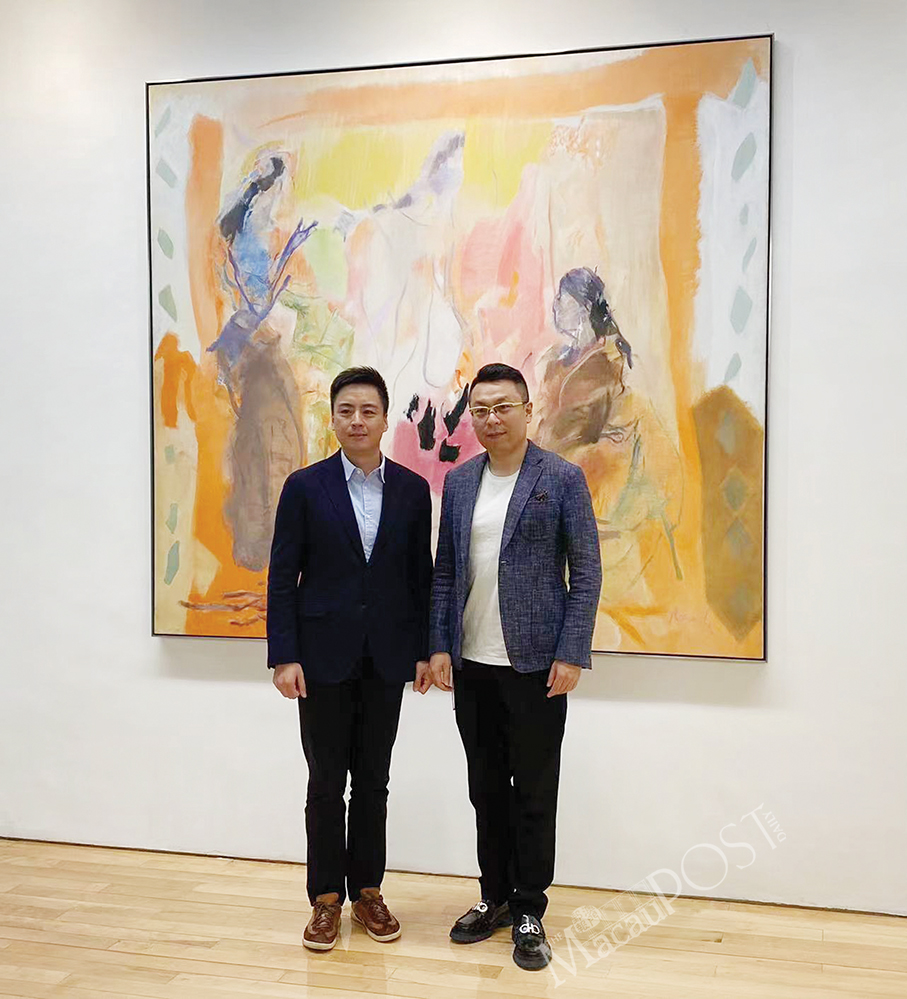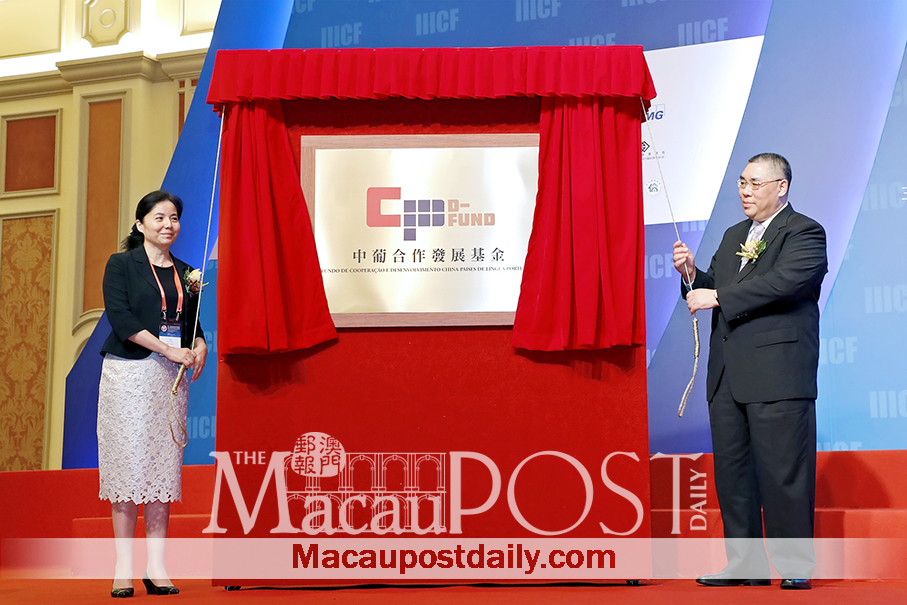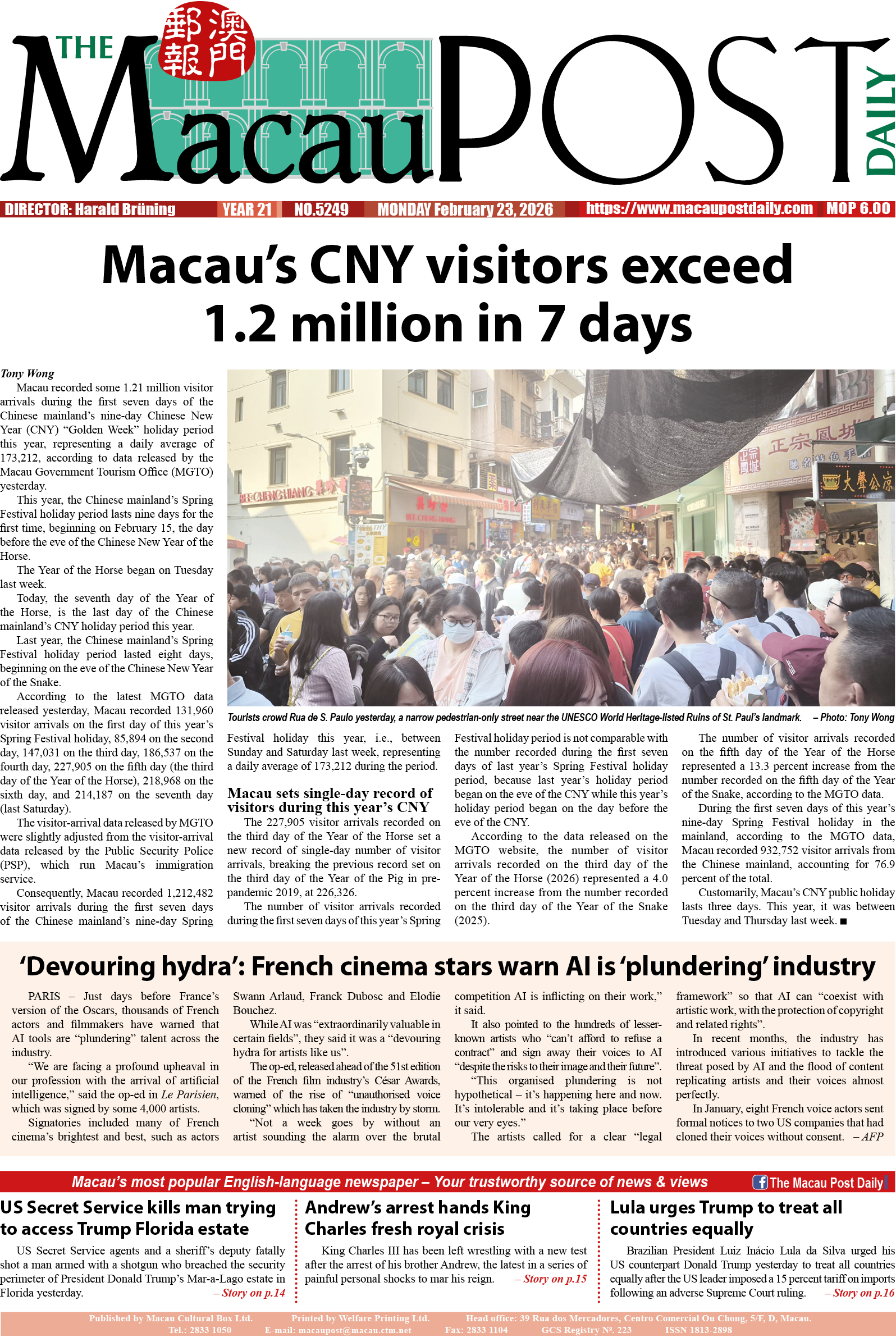The “Camané Concert with the Macao Chinese Orchestra”, which is part of the fifth “Encounter in Macao – Arts and Cultural Festival between China and the Portuguese-Speaking Countries” event organised by the Cultural Affairs Bureau (IC), is slated to take place tomorrow, featuring the collaboration between the Portuguese “fado” singer Camané, the Macao Chinese Orchestra, and various conductors from mainland China.
The Cultural Affairs Bureau held a media gathering for tomorrow’s concert at the Macau Cultural Centre (CCM) in Zape yesterday, where Camané, as well as Permanent Conductor of the Shanghai Chinese Orchestra Yao Shenshen and Concertmaster of the Macao Chinese Orchestra Zhang Yueru, spoke with the media and shared their thoughts about this “pioneering” cross-cultural collaboration, and fado.
Fado (meaning “fate” or “destiny” in Portuguese) is a traditional form of Portuguese singing performed with instruments such as Portuguese guitar (a 12-string bass guitar) and viola. According to the United Nations Educational, Scientific and Cultural Organisations (UNESCO), this music genre was first documented in Lisbon in the 1820s, where the mothers and lovers of sailors who were oceans-away from home started singing about their feelings and the nostalgia of better days. As such, the lyrics in fado often involve “saudade” (a Portuguese word translated as a melancholic state of longing) and the hard realities of daily life.
According to information on the IC website, Camané (whose real name is Carlos Manuel Duarte) is the leading male singer in the new generation of stylists in fado. Describing him as the “king of fado”, the website said that the 56-year-old singer has sold more than six million albums to date and has performed concerts in some major cities throughout Portugal and other countries in Europe, the US and Asia.
An attempt to make fado livelier: Camané
In the first half of yesterday’s media gathering, Camané, who has been performing fado for over 40 years, shared his views on the evolution of contemporary fado. According to him, in comparison to classic fado associated with the narratives of the quotidian of the lower classes of society, the music form in the modern day prompts a more regular tempo thanks to the introduction of new instruments and the interaction with different cultures. He described this collaboration with the Macao Chinese Orchestra, which is the first time he has performed with it, as a unique opportunity to perform his songs adapted to Chinese musical instruments, which, he said, results in fado becoming livelier and more dynamic.
In response to questions regarding the cultural differences between Macau and Portugal, he said that the two cultures were genuinely distinct and thus it would be “difficult and complicated” to convey the messages of his songs to the majority of the local audience, who “probably would not understand the lyrics”. However, he said that music was a powerful medium by which people from different cultures could communicate emotion. Therefore, he added, he would focus more on arousing feelings of the audience and bringing cohesion to the performance.
When asked about whether he will further partner with the Macao Chinese Orchestra to produce a new album, he said that currently he had no plans to work together with the orchestra on an album.
Music as a universal language: Yao & Zhang
In the second half of the event, Yao and Zhang elaborated on their preparation for the concert. Both said that it allowed them to see different perspectives and learn from each other. Yao praised the professionalism of the Macao Chinese Orchestra members who are already familiar with both Chinese and Western musical instruments and comfortable working with a variety of performers and conductors, so the ongoing collaboration has been smooth and “has had no problem at all”.
Having had no prior knowledge about fado, Yao and Zhang said that the first time they listened to it, they were amazed by how profoundly expressive and melancholic it is. “The singing exudes a sense of romanticism through the mournful tunes. It is beautiful.” Zhang noted, adding that it does share some similarities with traditional Chinese music in terms of rhythm and lyrics that are often infused with a sentiment of resignation.
Asked about how they [both Mandarin speakers] communicate with the Portuguese vocalist during their regular rehearsals, Yao said that they have mainly relied on gestures and the help of interpreters, “plus a little English”. He underlined that they have been able to understand each other despite the lack of a common tongue. “Music is a universal language that transcends language barriers. And musicians do not need too many words to be understood,” he added.
The concert will take place in the Grand Auditorium of the Macau Cultural Centre at 8 p.m. tomorrow. The tickets are priced at 400, 300 and 200 patacas, depending on the seats. More information is available at the IC’s website www.icm.gov.mo

Camané, the Portuguese fado vocalist (left) speaks with the media yesterday in the VIP Room of the Macau Cultural Centre, with a Chinese-Portuguese interpreter seated next to him. – Photos: Gabriel Tam

Permanent Conductor of the Shanghai Chinese Orchestra Yao Shenshen (right) and Concertmaster of the Macao Chinese Orchestra Zhang Yueru pose at the end of yesterday’s media gathering in the VIP Room of the Macau Cultural Centre.







